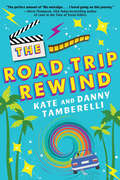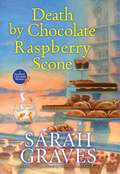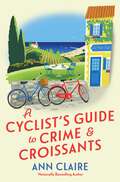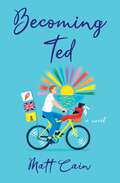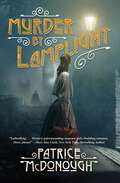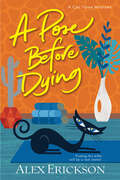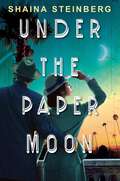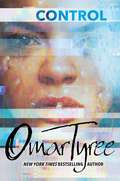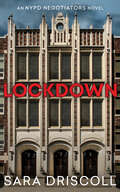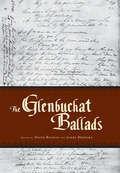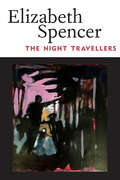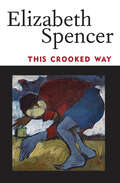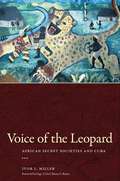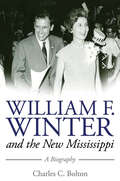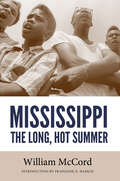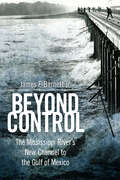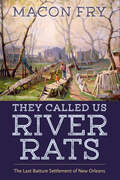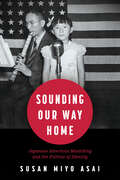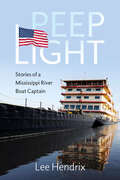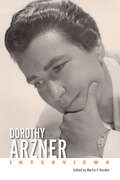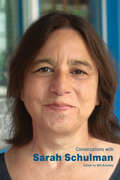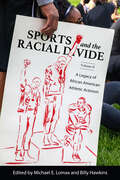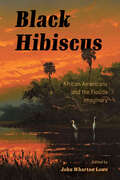- Table View
- List View
The Road Trip Rewind
by Kate Tamberelli Danny TamberelliBack to the Future meets 10 Things I Hate About You as the past, the present, and two hearts with unfinished business collide in the most epic, hilarious, and downright poignant way . . . Up-and-coming screenwriter Beatrix Noel&’s dream project is finally a reality—her 90s-era script is in production. Less dreamy is the A-list actor in the starring role—none other than Rocco Riziero, who jilted Beatrix on New Year&’s Eve back in 1999. Without his celebrity status, the project would likely still be withering on her hard drive, but that doesn&’t mean Beatrix won&’t shame him at every opportunityon-set—especially when it becomes painfully obvious he doesn&’t even remember her . . . Boxed-in as a Hollywood pretty-boy, Rocco is thrilled to tackle a genuinely dramatic role. But he&’s perplexed about why the screenwriter treats him like a maggot. And awkward becomes irksome when their bickering results in a car crash right outside the famed Roxy Theatre on Sunset Boulevard—site of the New Year&’s Eve party where everything went wrong . . . Shockingly, Beatrix, Rocco, and the car, are uninjured. The twist? They&’re clearly, truly, somehow, still in December, still on Sunset—but in 1999. Their mission? They&’ll have to work together to correct their old mistakes—which just might bring them closer than either expects . . . But can they change the past without altering their future selves—and hold on to what they&’ve found together? Only time-travel will tell . . .
The Diva Goes Overboard (A Domestic Diva Mystery #17)
by Krista DavisFor once, event planner Sophie Winston finds herself a guest at a lavish engagement party, but things go horrifyingly awry when the groom-to-be is fatally poisoned . . . In Old Town Alexandria&’s unlikeliest match, Natasha Smith&’s free-spirited mother, Wanda, is engaged to notoriously pompous antiques dealer, Orson Chatsworth—leaving Natasha to plan the entire wedding, beginning with an elaborate engagement party. For the extravagant affair, Natasha splurges on trendy food boards created by rising social media star, Stella St. James. The sumptuous boards go way beyond basic cheese and crackers, as Stella dazzles guests with picture-worthy butter boards, dessert boards, and even doughnut boards. Just as Natasha planned, the food is to die for—until someone actually does. When the groom collapses, it seems as if a heart attack is to blame. Then guests discover Orson was poisoned, and suddenly Stella&’s bespoke boards look a lot less appealing. But with an event this big, the spread of suspects is sure to be impressive. Could Orson&’s killer be a jilted ex-lover? A money hungry relative? A bitter former business partner? When even Sophie is not above suspicion, she knows it&’s time to get on board and scrape together an investigation of her own . . . before murder becomes the town&’s next trend. Includes delicious recipes, fabulous decorating tips, and easy entertaining hacks!
Amish Love Letters
by Shelley Shepard Gray Charlotte Hubbard Rosalind LauerA heartfelt note, a loving message, a letter filled with secret hopes—this trio of sweet Amish romances will show that on Valentine&’s Day, the right words can spark a lifetime of joy.Love Letter Courtship * Shelley Shepard Gray After six months of courtship, Jennie Miller has refused Matt Lapp&’s proposal. Though he visits regularly, they never seem to talk deeply, and Jennie longs for real connection and romance. Chastened, Matt offers a solution. For two months, they&’ll share letters filled with their hopes and dreams. Soon, Jennie is falling for Matt in earnest . . . but will he ever propose again?S.W.A.K * Charlotte Hubbard Quiet, gentle Fannie Kurtz knows that fun-loving Eddie Brubaker is the man she wants to marry someday. When he starts receiving letters in pink envelopes, she realizes she has some competition. Maybe it&’s time she wrote a love note or two of her own? But a mix-up could jeopardize this romance before it starts, unless she keeps faith in Gott&’s plan . . . The Wrong Valentine * Rosalind Lauer Young widow Martha Lambright is grateful to be working at her mother-in-law&’s restaurant, even if seeing the kitchen gals giggle over Valentine cards gives her a pang. But when Mose Troyer, the former bad boy who drives Martha to and from work each day, finds a Valentine he mistakenly believes is for him, it begins a tender exchange that could lead to a wonderful future . . .
Death by Chocolate Raspberry Scone (A Death by Chocolate Mystery #7)
by Sarah GravesSummer guests are eager to sink their teeth into tantalizing desserts at The Chocolate Moose, Jacobia &“Jake&” Tiptree and Ellie White&’s bakeshop in the island village of Eastport, Maine. But attracting the wrong kind of attention can be deadly . . . With the August heat strong enough to melt solid chocolate into syrup, Jake and Ellie crave a break from the bakery ovens, despite tourist season promising a sweet payday. But they never envisioned spending the last weeks of summer drifting around Passamaquoddy Bay searching for pirate&’s treasure—and a dead body. Sally Coates believes her husband was murdered off the coast, and begs Ellie, a trusted childhood friend, to locate his remains. It&’s unusual that a skilled fisherman would vanish along with the gold doubloon he inherited from his grandfather. And Sally isn&’t the only one coveting the valuable heirloom for her own. As Jake and Ellie&’s island-hop for answers, they find themselves caught between hungry sharks and hungrier suspects. Can the duo tempt fate and dodge danger before there&’s blood in the water—or are they destined to fall into the jaws of a killer&’s trap?
A Cyclist's Guide to Crime & Croissants (A Cyclist's Guide Mystery #1)
by Ann Claire&“A delightful blend of mystery, travel, and joie de vivre!&” —Ellery Adams, New York Times bestselling author Vicariously tour the sundrenched Mediterranean Coast in this perfectly escapist new cozy mystery series starring American expat-turned-bike tour company owner in Southern France. Perfect for fans of Donna Leon&’s The Commissario Guido Brunetti Mysteries, M.L. Longworth&’s Provençal Mystery series, and armchair travel! Nine months ago, Sadie Greene shocked friends and family by ditching her sensible office job in the Chicago suburbs and buying a sight-unseen French bicycling tour company, Oui Cycle. Now she&’s living the unconventional life of her dreams in the gorgeous village of Sans-Souci-sur-Mer. Sans souci means carefree, but Sadie feels enough pressure to burst a tire when hometown friends arrive for a tour, including her former boss, Dom Appleton. Sadie is determined to show them the wonders of France and cycling—and to prove she made the right move. She hopes her meticulously planned nine-day itinerary will win them over, with its stunning seascapes, delicious wine tastings, hilltop villages, and, of course, frequent stops for croissants. When Dom drags his heels on fun, Sadie vows he&’ll enjoy if it kills her. That is, until Dom ends up dead. The tragedy was no accident. Someone went out of their way to bring a permanent end to Dom&’s vacation. As more crimes—and murder—roll in, suspicions hover over Oui Cycle. To save her dream business, help her friends, and bring justice, Sadie launches her own investigation. However, mysteries mount with every turn. On an uphill battle for clues, can Sadie come to terms with her painful past while spinning closer to the truth—or will a twisted killer put the brakes on her for good?&“A delicious fast-paced mystery across the French countryside.&” —Cleo Coyle, New York Times bestselling author
Becoming Ted
by Matt CainA charmingly joyful, surprising story about love, acceptance, and self-expression from the acclaimed author of The Secret Life of Albert Entwistle. Fans of the musical &“Kinky Boots&” and Byron Lane&’s Big Gay Wedding will have their hearts stolen by Becoming Ted! If Ted Ainsworth were to compare himself to one of the ice cream flavors made by his family&’s company, famous throughout his sleepy Lancashire hometown, it might be vanilla—sweet, inoffensive, and pleasantly predictable. At forty-three, Ted is convinced there&’s nothing remotely remarkable about him, except perhaps his luck in having landed handsome, charismatic Giles as a husband. Then Giles suddenly leaves him for another man, filling his social media feed with posts about #newlove and adventure. And Ted, who has spent nearly twenty years living with, and often for, another person, must reimagine the future he has happily taken for granted. But perhaps there is another Ted slowly blossoming now that he&’s no longer in Giles&’s shadow—funny, sassy, more uninhibited. Someone willing to take chances on new friendships, and even new love. Someone who&’s been waiting in the wings too long, but who&’s about to dust off a long-ago secret dream and overturn everyone&’s expectations of him—especially his own. . .
Murder by Lamplight (A Dr. Julia Lewis Mystery #1)
by Patrice McDonoughFor fans of Andrea Penrose and Deanna Raybourn, and anyone who relishes riveting, well-researched historical fiction, this inventive and enthralling debut mystery set in Victorian London pairs the unconventional, trailblazing Dr. Julia Lewis with a traditional and skeptical police inspector, as they try to stop a wily serial killer whose vengeance has turned personal. November 1866: The grisly murder site in London&’s East End is thronged with onlookers. None of them expect the calmly efficient young woman among them to be a medical doctor, arrived to examine the corpse. Inspector Richard Tennant, overseeing the investigation, at first makes no effort to disguise his skepticism. But Dr. Julia Lewis is accustomed to such condescension . . . To study medicine, Julia had to leave Britain, where universities still bar their doors to women, and travel to America. She returned home to work in her grandfather&’s practice—and to find London in the grip of a devastating cholera epidemic. In four years, however, she has seen nothing quite like this—a local clergyman&’s body sexually mutilated and displayed in a manner that she—and Tennant—both suspect is personal. Days later, another body is found with links to the first, and Tennant calls in Dr. Lewis again. The murderer begins sending the police taunting letters and tantalizing clues—though the trail leads in multiple directions, from London&’s music halls to its grim workhouses and dank sewers. Lewis and Tennant struggle to understand the killer&’s dark obsessions and motivations. But there is new urgency, for the doctor&’s role appears to have shifted from expert to target. And this killer is no impulsive monster, but a fiendishly calculating opponent, determined to see his plan through to its terrifying conclusion . . .
A Pose Before Dying (A Cat Yoga Mystery #1)
by Alex EricksonFledgling entrepreneur Ashley Branson is thrilled to open her dream business—a cat yoga studio. But helping clients find balance and felines find homes soon becomes one unhealthy exercise in murder . . . Ashley Branson has a lot to prove with her new cat yoga studio, A Purrfect Pose. It's a place for humans to find inner wellness—and adopt adorable cats from the local shelter. It&’s also a chance for Ash to run her own life, out from under her overbearing mother and a stifling relationship. So far, so successful. Until she discovers one of her new clients, a much-disliked college professor, dead in her studio, locked in child&’s pose . . . To make matters worse, Ash&’s hapless always-in-trouble brother, Hunter, instantly becomes the cops&’ prime suspect. Determined to clear his name and save her business, Ash does a deep lunge into the surprising—and strange—connections the victim had with her other clients. But countless suspects, contradictory leads, not to mention people desperate to see her studio shut down, mean Ash will have to stretch to the max to outthink a clever killer who&’s ready to strike her red in tooth and claw . . .
Under the Paper Moon
by Shaina SteinbergKate Quinn&’s The Rose Code meets Mr. and Mrs. Smith in this intrigue-filled debut, as two former spies who shared more than just missions during WWII reunite in 1948 Los Angeles. Can they let go of heartbreak long enough to team up for one last operation in this tightly-plotted, emotionally rich postwar mystery? It&’s 1942, and as far as her father knows, Evelyn Bishop, heiress to an aeronautics fortune, is working as a translator in London. In truth, Evelyn—daring, beautiful, and as adept with a rifle as she is in five languages—has joined the Office of Strategic Services as a spy. Her goal is personal: to find her brother, who is being held as a POW in a Nazi labor camp. Through one high-risk mission after another she is paired with the reckless and rebellious Nick Gallagher, growing ever close to him until the war&’s end brings with it an act of deep betrayal. Six years later, Evelyn is back home in Los Angeles, working as a private investigator. The war was supposed to change everything, yet Evelyn, contemplating marriage to her childhood sweetheart, feels stifled by convention. Then the suspected cheating husband she&’s tailing is murdered, and suddenly Evelyn is back in Nick&’s orbit again. Teaming up for a final mission, Evelyn and Nick begin to uncover the true nature of her case— and realize that the war has followed them home. For beyond the public horrors waged by nations there are countless secret, desperate acts that still reverberate on both continents, and threaten everything Evelyn holds dear...
Control
by Omar TyreeSix talented but dangerously toxic personalities in the entertainment hotbed of Atlanta push their psychologist to her own vulnerable limits – and maybe beyond – in this enthralling, knife-edged thriller from NAACP Image Award-winning author Omar Tyree. Dr. Victoria Benning knows it&’s unethical to discuss the therapy sessions of her clients, but the drama of their unpredictable lives tests her professional role like never before. First, she counsels Mrs. Melody, a brutally honest, gorgeous rap artist who relies on sexual leverage with men to elevate her music career. Then there&’s Charles Clay, a hot young film director and master manipulator with a fetish for opportunistic women. Tyrell Hodge is a frustrated screenwriter, part-time driver, and full-time complainer who desperately needs a break. Dark & Moody is a music producer who prays for a blood sacrifice in order to succeed. Joseph Drake, a venture capitalist from a powerful, slave-ownership family, now suffers from a spell of White guilt. And Destiny Flowers is a hopeless dreamer who struggles to keep her mouth and mind at peace—while harassing the tolerant doctor she hopes will ultimately help her. Working around the clock, Dr. Benning observes a troubling, treacherous common denominator that plagues all six clients: a desperate impulse to grasp control of everything and everyone in their lives—no matter the cost. It&’s a struggle with which she&’s all too familiar. Determined to head-off tragedy, she comes up with a brilliant game plan to make their collective talents work in everyone&’s favor. . . But just as she moves into action, inexplicable events quickly turn fatal, as the doctor finds her plan, her career, and her personal life all spiraling into madness—and hopelessly out of control.
Lockdown (NYPD Negotiators #3)
by Sara DriscollWhen a horrific school shooting turns into a hostage situation, only Gemma Capello, the NYPD&’s most skilled negotiator, has a chance to save innocent lives and end the crisis . . . Talking a suspect into sending his hostages out alive is NYPD Detective Gemma Capello&’s specialty. Alerted to a school shooting at her nephew&’s Brooklyn high school, she is one of the first officers on-scene. Detective Sean Logan and the Apprehension Tactical Team arrive next and immediately enter the school to apprehend the two shooters, while Gemma remains outside to help students evacuate. But as time stretches on, and there is no word of her nephew, her fear builds that he is one of the lost. One of the two shooters has holed up with a group of students and their teacher as hostages. Gemma steps in to negotiate for their survival. Floors away and armed with only her wits and the sound of her voice to convince him, Gemma fights for control of the situation even as tactical leadership pressures her for a more aggressive strategy. But for Gemma, it&’s not about a quick solution. It&’s about moving heaven and earth to bring everyone in that classroom home. And she&’ll do whatever it takes to achieve that goal. Praise for the NYPD Negotiators series &“Tense and tightly plotted, Exit Strategy pulls you in and doesn't let go. A compelling page-turner.&” —New York Times bestselling author Marc Cameron
The Glenbuchat Ballads
by David BuchanSometime in the early nineteenth century, most likely in the year 1818, the Reverend Robert Scott, minister of the parish of Glenbuchat in Aberdeenshire, Scotland, compiled a collection of traditional ballads that until now has not been published. Most of the ballad collections produced during the Scottish Romantic Revival were eventually anthologized in Francis James Child's seminal English and Scottish Popular Ballads (five volumes, 1882-96). Yet, the Glenbuchat manuscripts, containing sixty-eight ballads in four folio volumes, were not included in Child's volumes. The complete work only came to light in 1949 when it was donated to the Special Collections of the Aberdeen University Library by a descendent of the original compiler. Scott did not give the precise locations of where he collected his ballads or name the performers, but the texts are unique and appear to have been drawn from oral sources. As such, the ballads reveal a great deal about the nature of traditional music at the time they were collected. The Glenbuchat Ballads were originally prepared for publication by David Buchan, one of the leading ballad scholars of the twentieth century. Upon Buchan's death, his former student James Moreira took up and completed his work and wrote the detailed introductory essay and annotations in this volume.
The Night Travellers (Banner Books)
by Elizabeth SpencerElizabeth Spencer is “a master storyteller” (San Francisco Chronicle), her work called “dazzling” by Walker Percy. Whether she's writing short stories or novels, Spencer is acclaimed for holding her worlds up to light and turning them to see what they reflect. The Night Travellers, set in North Carolina and Montreal during the Vietnam War years, is her most revealing work yet. Mary Kerr Harbison is a promising teenaged dancer when she meets Jefferson Blaise, an intellectual radical-in-the-making. He becomes a part of her life and over the objections of Mary’s wealthy, abusive mother, her husband. But although Jeff’s heart is devoted to Mary, his life is devoted to protesting the Vietnam War—at first through the public rallies, later through guerilla tactics. As Jeff is drawn deeper and deeper into the movement, he and Mary are forced to go underground and eventually move to Canada. Jeff’s activities keep him on the move, and Mary, living in Montreal, struggles to raise her daughter and make a life for herself. An exploration of a dramatic period in our history, The Night Travellers is a powerful depiction of lives forever changed by political beliefs and fervidly held convictions.
This Crooked Way (Banner Books)
by Elizabeth SpencerElizabeth Spencer presents a vital, moving story set in the deep South—the Delta and Mississippi Hill Country. Amos Dudley was a farm boy in the Delta at the turn of the century until he started working for his brother Ephraim in the store by the railroad. It was an ordinary enough environment in which to begin to feel the strange forces that move a man to set his course in the world. But the forces working within Amos were by no means ordinary. Sometimes cruel, sometimes suddenly tender, they were strong and willful, so that Amos became a man to reckon with—to Ary, his beautiful, plantation-born wife, to the woman in the bayou, to the shiftless philosopher, Arney. Even the rich, black swamp soil which he wrested from the forest and gave to his cotton seemed to respond with awe and eagerness to Amos’s will. His sensuous, wayward daughter and the man she loved especially felt the full shattering drama of the violence which had evidently been building—building in the fate of a man who, regardless, takes his own crooked way.
Voice of the Leopard: African Secret Societies and Cuba (Caribbean Studies Series)
by Ivor MillerIn Voice of the Leopard: African Secret Societies and Cuba, Ivor L. Miller shows how African migrants and their political fraternities played a formative role in the history of Cuba. During the eighteenth and nineteenth centuries, no large kingdoms controlled Nigeria and Cameroon's multilingual Cross River basin. Instead, each settlement had its own lodge of the initiation society called Ékpè, or “leopard,” which was the highest indigenous authority. Ékpè lodges ruled local communities while also managing regional and long-distance trade. Cross River Africans, enslaved and forcibly brought to colonial Cuba, reorganized their Ékpè clubs covertly in Havana and Matanzas into a mutual-aid society called Abakuá, which became foundational to Cuba's urban life and music. Miller's extensive fieldwork in Cuba and West Africa documents ritual languages and practices that survived the Middle Passage and evolved into a unifying charter for transplanted slaves and their successors. To gain deeper understanding of the material, Miller underwent Ékpè initiation rites in Nigeria after ten years' collaboration with Abakuá initiates in Cuba and the United States. He argues that Cuban music, art, and even politics rely on complexities of these African-inspired codes of conduct and leadership. Voice of the Leopard is an unprecedented tracing of an African title-society to its Caribbean incarnation, which has deeply influenced Cuba's creative energy and popular consciousness.
William F. Winter and the New Mississippi: A Biography (Willie Morris Books in Memoir and Biography)
by Charles C. BoltonFor more than six decades, William F. Winter (1923–2020) was one of the most recognizable public figures in Mississippi. His political career spanned the 1940s through the early 1980s, from his initial foray into Mississippi politics as James Eastland's driver during his 1942 campaign for the United States Senate, as state legislator, as state tax collector, as state treasurer, and as lieutenant governor. Winter served as governor of the state of Mississippi from 1980 to 1984. A voice of reason and compromise during the tumultuous civil rights battles, Winter represented the earliest embodiment of the white moderate politicians who emerged throughout the “New South.” His leadership played a pivotal role in ushering in the New Mississippi—a society that moved beyond the racial caste system that had defined life in the state for almost a century after emancipation. In many ways, Winter's story over nine decades was also the story of the evolution of Mississippi in the second half of the twentieth century. Winter remained active in public life after retiring from politics following an unsuccessful U.S. Senate campaign against Thad Cochran in 1984. He worked with a variety of organizations to champion issues that were central to his vision of how to advance the interests of his native state and the South as a whole. Improving the economy, upgrading the educational system, and facilitating racial reconciliation were goals he pursued with passion. The first biography of this pivotal figure, William F. Winter and the New Mississippi traces his life and influences from boyhood days in Grenada County, through his service in World War II, and through his long career serving Mississippi.
Mississippi: The Long, Hot Summer (Civil Rights in Mississippi Series)
by William McCordIn 1964, sociologist William McCord, long interested in movements for social change in the United States, began a study of Mississippi's Freedom Summer. Stanford University, where McCord taught, had been the site of recruiting efforts for student volunteers for the Freedom Summer project by such activists as Robert Moses and Allard Lowenstein. Described by his wife as “an old-fashioned liberal,” McCord believed that he should both examine and participate in events in Mississippi. He accompanied student workers and black Mississippians to courthouses and Freedom Houses, and he attracted police attention as he studied the mechanisms of white supremacy and the black nonviolent campaign against racial segregation. Published in 1965 by W. W. Norton, his book, Mississippi: The Long, Hot Summer, is one of the first examinations of the events of 1964 by a scholar. It provides a compelling, detailed account of Mississippi people and places, including the thousands of student workers who found in the state both opportunities and severe challenges. McCord's work sought to communicate to a broad audience the depth of repression in Mississippi. Here was evidence of the need for federal action to address what he recognized as both national and southern failures to secure civil rights for black Americans. His field work and activism in Mississippi offered a perspective that few other academics or other white Americans had shared. Historian Françoise N. Hamlin provides a substantial introduction that sets McCord's work within the context of other narratives of Freedom Summer and explores McCord's broader career that combined distinguished scholarship with social activism.
Beyond Control: The Mississippi River’s New Channel to the Gulf of Mexico (America's Third Coast Series)
by James F. Barnett Jr.Beyond Control reveals the Mississippi as a waterway of change, unnaturally confined by ever-larger levees and control structures. During the great flood of 1973, the current scoured a hole beneath the main structure near Baton Rouge and enlarged a pre-existing football-field-size crater. That night the Mississippi River nearly changed its course for a shorter and steeper path to the sea. Such a map-changing reconfiguration of the country’s largest river would bear national significance as well as disastrous consequences for New Orleans and towns like Morgan City, at the mouth of the Atchafalaya River. Since 1973, the US Army Corps of Engineers Control Complex at Old River has kept the Mississippi from jumping out of its historic channel and plunging through the Atchafalaya Basin to the Gulf of Mexico. Beyond Control traces the history of this phenomenon, beginning with a major channel shift around 3,000 years ago. By the time European colonists began to explore the Lower Mississippi Valley, a unique confluence of waterways had formed where the Red River joined the Mississippi, and the Atchafalaya River flowed out into the Atchafalaya Basin. A series of human alterations to this potentially volatile web of rivers, starting with a bend cutoff in 1831 by Captain Henry Miller Shreve, set the forces in motion for the Mississippi’s move into the Atchafalaya Basin. Told against the backdrop of the Lower Mississippi River’s impending diversion, the book’s chapters chronicle historic floods, rising flood crests, a changing strategy for flood protection, and competing interests in the management of the Old River outlet. Beyond Control is both a history and a close look at an inexorable, living process happening now in the twenty-first century.
They Called Us River Rats: The Last Batture Settlement of New Orleans
by Macon FryThey Called Us River Rats: The Last Batture Settlement of New Orleans is the previously untold story of perhaps the oldest outsider settlement in America, an invisible community on the annually flooded shores of the Mississippi River. This community exists in the place between the normal high and low water line of the Mississippi River, a zone known in Louisiana as the batture. For the better part of two centuries, batture dwellers such as Macon Fry have raised shantyboats on stilts, built water-adapted homes, foraged, fished, and survived using the skills a river teaches. Until now the stories of this way of life have existed only in the memories of those who have lived here. Beginning in 2000, Fry set about recording the stories of all the old batture dwellers he could find: maritime workers, willow furniture makers, fishermen, artists, and river shrimpers. Along the way, Fry uncovered fascinating tales of fortune tellers, faith healers, and wild bird trappers who defiantly lived on the river. They Called Us River Rats also explores the troubled relationship between people inside the levees, the often-reviled batture folks, and the river itself. It traces the struggle between batture folks and city authorities, the commercial interests that claimed the river, and Louisiana’s most powerful politicians. These conflicts have ended in legal battles, displacement, incarceration, and even lynching. Today Fry is among the senior generation of “River Rats” living in a vestigial colony of twelve “camps” on New Orleans’s river batture, a fragment of a settlement that once stretched nearly six miles and numbered hundreds of homes. It is the last riparian settlement on the Lower Mississippi and a contrarian, independent life outside urban zoning, planning, and flood protection. This book is for everyone who ever felt the pull of the Mississippi River or saw its towering levees and wondered who could live on the other side.
Sounding Our Way Home: Japanese American Musicking and the Politics of Identity
by Susan Miyo AsaiA product of twenty-five years of archival and primary research, Sounding Our Way Home: Japanese American Musicking and the Politics of Identity narrates the efforts of three generations of Japanese Americans to reach “home” through musicking. Using ethnomusicology as a lens, Susan Miyo Asai examines the musical choices of a population that, historically, is considered outside the racial and ethnic boundaries of American citizenship. Emphasizing the notion of national identity and belonging, the volume provokes a discussion about the challenges of nation-building in a democratic society.Asai addresses the politics of music, interrogating the ways musicking functions as a performance of social, cultural, and political identification for Japanese Americans in the United States. Musicking is an inherently political act at the intersection of music, identity, and politics, particularly if it involves expressing one’s ethnicity and/or race. Asai further investigates how Japanese American ethnic identification and cultural practices relate to national belonging. Musicking cultivates a narrative of a shared history and aesthetic between performers and listeners. The discourse situates not only Japanese Americans, but all Asians into the Black/white binary of race relations in the United States.Sounding Our Way Home contributes to the ongoing struggle for acceptance and equal representation for people of color in the US. A history of Japanese American musicking across three generations, the book unveils the social and political discrimination that nonwhite immigrants and their offspring continue to face when it comes to finding acceptance in US society and culture.
Peep Light: Stories of a Mississippi River Boat Captain
by Lee HendrixMost people only consider the Mississippi River when they cross it or when it inconveniently abandons its banks. But every year, millions of tons of cargo are transported by towboats on the river. In Peep Light: Stories of a Mississippi River Boat Captain, Captain Lee Hendrix provides unique insight on people who work and live on and near the Mississippi River. Hendrix, formerly a pilot for the Delta Queen Steamboat Co., has worked on the Mississippi for fifty years, first as a towboat deckhand in 1972 and eventually as a pilot of towboats and passenger vessels. In 2014, Hendrix became captain of the towboat Mississippi with the US Army Corps of Engineers, then he later retired to return to passenger vessels. For Hendrix and others like him, he is at home on the river, living and dining with the same people they work with, working with familiar faces for years at a time and yet meeting new people every day.Demonstrating a fascination not only with the river but also with the passions and dreams of those who live and work on it, these stories range from personal reflections on aging, experiencing one’s first night on the river and the complex emotions that come with it, working on the deck, promotion to pilot, the characters working aboard these boats, and the history of the river itself. Peep Light unites humans with the river through engaging storytelling and sheds light on Hendrix’s rare experience along one of the most powerful and important waterways in the world.
Dorothy Arzner: Interviews (Conversations with Filmmakers Series)
by Martin F. NordenThrough dozens of interviews, a detailed chronology and filmography, and a selection of Dorothy Arzner’s own writings—including her unfinished autobiography—Dorothy Arzner: Interviews offers major insights into and an in-depth examination of the life and career of one of the few women to direct films during Hollywood’s Golden Age. A key figure in Hollywood for decades, she directed more studio films than any other woman in history. Her movies often focused on courageous women who must make difficult decisions to remain true to themselves—women not unlike Arzner herself, who once said that “all we can ever do in our work is write our own biography.”Dorothy Arzner (1897–1979) began her film career in 1919 as a script typist for the Famous Players-Lasky company, which later became Paramount Pictures. She quickly rose through the ranks to become a script supervisor, screenwriter, and editor before directing her first film, Fashions for Women, in 1927. After the release of her final Hollywood film, First Comes Courage, in 1943, Arzner changed directions in her professional life. She made several training films for the Women’s Army Auxiliary Corps during World War II and directed many television commercials for Pepsi-Cola in the 1950s. She concluded her career by serving as a filmmaking instructor at the Pasadena Playhouse College of Theatre Arts and UCLA, where she helped launch the first wave of college-trained moviemakers.
Conversations with Sarah Schulman (Literary Conversations Series)
by Will BrantleyThe twenty-four interviews collected in Conversations with Sarah Schulman, roughly a fifth of those that exist, have enabled Schulman to expound upon her distinctive fusion of art and social commitment. Ranging from major forums to smaller venues, and covering a period of more than thirty years, these interviews provide full evidence of Schulman’s value as a pivotal player in the intellectual life of her time. Schulman’s career as a writer, activist, teacher, and oral historian is now in its fifth decade. Spanning multiple fiction genres, her eleven novels include After Delores (1988), Rat Bohemia (1995), The Child (2007), and Maggie Terry (2018). A native New Yorker, Schulman (b. 1958) writes for the people that she writes about—women and men making the most of a society that seems continually marked by homophobia, which Schulman regards as less a phobia than an unacknowledged pleasure system. Readers have come to relish Schulman’s provocations, nowhere more so than through her books of nonfiction on topics such as gentrification and the interlocking nature of conflict and abuse. And since the early 1980s, when Schulman worked as a journalist, readers have come to applaud her searing indictments of the nation’s woeful response to its AIDS crisis. Schulman has received the Kessler Award from CLAGS: The Center for LGBTQ Studies in honor of her body of work that has influenced the field of gay and lesbian studies, as well as the Bill Whitehead Award from Publishing Triangle for lifetime achievement. She holds an endowed chair in creative writing at Northwestern University.
Sports and the Racial Divide, Volume II: A Legacy of African American Athletic Activism
by Michael E. Lomax and Billy HawkinsContributions by Amy Bass, Ashley Farmer, Sarah K. Fields, Billy Hawkins, Kurt Edward Kemper, Michael E. Lomax, and David K. Wiggins In Sports and the Racial Divide, Volume II: A Legacy of African American Athletic Activism, Michael E. Lomax and Billy Hawkins draw together essays that examine evolving attitudes about race, sports, and athletic activism in the US. A follow-up to Lomax’s Sports and the Racial Divide: African American and Latino Experience in an Era of Change, this second anthology links post–World War II African American protest movements to a range of contemporary social justice interventions. Athlete activists have joined the ongoing pursuit for Black liberation and self-determination in a number of ways. Contributors examine some of these efforts, including the fight for HBCUs to enter the NCAA basketball tournament; Harry Edwards and the boycott of the 1968 Olympic Games; and US sporting culture in the post-9/11 era. Essays also detail topics like the protest efforts of San Francisco 49ers quarterback Colin Kaepernick; the link between the Black Power movement and the current Black Lives Matter movement; and the activism of athletes like Lebron James and Naomi Osaka. Collectively, these essays reveal a historical narrative in which African Americans have transformed the currency of athletic achievement into impactful political capital.
Black Hibiscus: African Americans and the Florida Imaginary
by John Wharton LoweContributions by Simone A. James Alexander, José Felipe Alvergue, Valerie Babb, Pamela Bordelon, Taylor Hagood, Joyce Marie Jackson, Delia Malia Konzett, Jane Landers, John Wharton Lowe, Gary Monroe, Noelle Morrissette, Paul Ortiz, Lyrae Van Clief-Stefanon, Genevieve West, and Belinda Wheeler The state of Florida has a rich literary and cultural history, which has been greatly shaped by many different ethnicities, races, and cultures that call the Sunshine State home. Little attention has been paid, however, to the key role of African Americans in Floridian history and culture. The state’s early population boom came from immigrants from the US South, and many of them were African Americans. Interaction between the state’s ethnic communities has created a unique and vibrant culture, which has had, and continues to have, a significant impact on southern, national, and hemispheric life and history. Black Hibiscus: African Americans and the Florida Imaginary begins by exploring Florida’s colonial past, focusing particularly on interactions between maroons who escaped enslavement, and on Albery Whitman’s The Rape of Florida, which also links Black people and Native Americans. Contributors consider film, folklore, and music, as well as such key Black writers as Zora Neale Hurston, James Weldon Johnson, Gwendolyn Bennett, Colson Whitehead, and Edwidge Danticat. The volume features Black Floridians’ role in the civil rights movement and Black contributions to the celebrated Florida Writers’ Project. Contributors include literary scholars, historians, film critics, art historians, anthropologists, musicologists, political scientists, artists, and poets.
